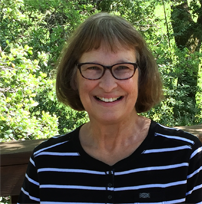 Parenting an Athlete
Parenting an Athlete
by P J Caposey, Guest Blogger
I have a confession to make . . .
My oldest son was in fourth grade. I was a Superintendent of Schools in the neighboring district to where he was being raised and I previously served as principal in the district he was attending and in the same building as his youth basketball game was taking place.
The tournament was hotly contested, you know – as much as fourth grade basketball can be. Towards the end of the game, a player on the opposing team stepped out of bounds right in front of me. By this point in the game the crowd was really into it and in that moment, I yelled, “He is out of bounds,” and the referee stopped the game and asked me to leave.
I challenged that step saying I was not even critiquing the officiating, but in hindsight, he was right. Embarrassingly, the lead official at the tournament was a former student who told me to stay and not worry about it. I sat silently the rest of the game.
After the game, which my son’s team won in exciting fashion, he did not want to talk about the game. He wanted to talk about my behavior. I rationalized it away. Then, he basically unprompted, told me he hated whenever I yelled anything. My nine-year-old was showing more emotional maturity than I had been over the infancy of his athletic career.
He was nine. He was thinking about MY behavior. How embarrassing – for him, for me, for everybody.
Since then, I have done a lot of reading about how to attempt to raise athletes productively. To be clear, when I am talking about athletes here, I am not talking about the second-coming of Lebron James. I am talking about kids who are going to be athletically competitive and it is going to be a part of your family’s life.
I have learned, and try to deploy, three key techniques that have allowed my kids’ sports to be bonding agents for us and not an issue that creates stress and angst.
Be Quiet
I talk very little at my kids’ games anymore. There are times I cannot help it if someone is running wide open or I have watched the same mistake for the eighth time in a row. But, for the most part, I can go an entire game enjoying popcorn and a Diet Coke.
This is my number one recommendation. Be quiet. If you do not believe me ask any current junior high or high school athlete
The Ride Home Matters
I have learned this from other books, blogs, and social media posts. The ONLY thing your child needs to hear on the ride home is, “I loved watching you play today.” That is all you need to say. They do not need nor deserve coaching when they arrive in the car. They should find the car ride home to be a place of peace and reflection.
I read this a few times before I deployed the strategy. Then, I did. My kids had no idea how to react. In fact, it was too far in the other direction for them. A portion of our bond as child and parent was built around athletics. Going from 100 to 0 was not good for them.
Now, I always try to remember to tell them that I loved watching them play. Then, I will follow it up with, “I have a little coaching for you if you want it. Let me know when you are ready.” Sometimes, it is immediate. Other times, it is not until the ride home is over, shower complete, and snack eaten before they ask.
This works for us, and the car ride home is a safe space. I remember after a particularly rough ‘invite-only’ camp six hours away we had crossed two state lines before I was asked for any feedback. A few years prior, he would have known my thoughts before we ever hit the highway.
Accountability, Always
My kids will not be professional athletes. They will be spouses, employees, and bosses. There are lessons to be learned through athletics that supersede wins, losses, points, and assists. The number one lesson I try to help them with is not allowing them to BCD after a game or practice. BCD stands for Blame (someone or something else), Complain (about their difficult circumstances), and Defend (their own behavior). This three-step process intentionally or unintentionally removes all ownership and responsibility from the athlete and places it with teammates, coaches, and outside circumstances.
BCD is not something I tolerate from my kids after athletics. My perspective is that in life there will always be an excuse or something to blame, but the very best leaders, employees, friends, and spouses take responsibility and are problem solvers instead of problem admirers.
I am dogmatic about this. My kid can score zero points all season and still be a great teammate and that will prepare him or her for their adult life. Scoring 5 goals in a game and then blaming teammates or a coach for a loss or complaining about the officiating is not a recipe for future success.
The bottom line is that many of us are raising athletes that will never even play at the collegiate level. Remembering that allows us to focus our own behaviors on the relationships we are fostering with our kids and the positive lessons we are attempting to teach them.
P J Caposey’s Biography
PJ Caposey is a dynamic speaker and a transformational leader and educator. PJ began his career as an award-winning teacher in the inner-city of Chicago and has subsequently led significant change in every administrative post he has held. PJ became a principal at the age of 28 and within three years was able to lead a small-town/rural school historically achieving near the bottom of its county to multiple national recognitions. After four years, PJ moved to his current district, Meridian CUSD 223, as superintendent and has led a similar turnaround leading to multiple national recognitions for multiple different efforts.
PJ is a best-selling author and has written eight books for various publishers. His work and commentary have been featured on sites such as the Washington Post, NPR, CBS This Morning, ASCD, Edutopia, the Huffington Post, and was featured in a Global Leaders Forum thinkpiece alongside the likes of General Petraeus and General McChrystal. He works in the Education Department of two universities and in a myriad of capacities with the Illinois Principal’s Association including Principal Coach and author of the first complete stack of MicroCredentials offered in Illinois.
You can find him on most social media platforms with the handle @MCUSDSupe or his name PJ Caposey. His website www.pjcaposey.com also archives many speeches, blogs, podcasts, and articles for your review.

Mary Ann Burke, Ed.D., Digital Education Expert, is a substitute distance learning teacher for Oak Grove School District in San Jose, California and the author of STUDENT-ENGAGED ASSESSMENT: Strategies to Empower All Learners (Rowman & Littlefield: 2020). Dr. Burke creates digital language arts and substitute teaching K – 12 activities for teachers and parents. She is the Cofounder of the Genparenting.com blog. Burke is the former Director II of Categorical & Special Projects for the Santa Clara County Office of Education that supports 31 school districts serving 272,321 students in Santa Clara County. She is also a previous Director – State & Federal Compliance for Oakland Unified School District, the former Director – Grantwriter for the Compton Unified School District, and was the initial VISTA Director for the Community Partnership Coalition in southern California. Much of her work focuses on creating innovative digital trainings and partnership programs for teachers and families to support students’ learning. These programs were featured as a best practice at a National Title I Conference, California’s Title I Conferences, AERA Conferences, an ASCD Conference, the NASSP Conference, and statewide educator conferences.

